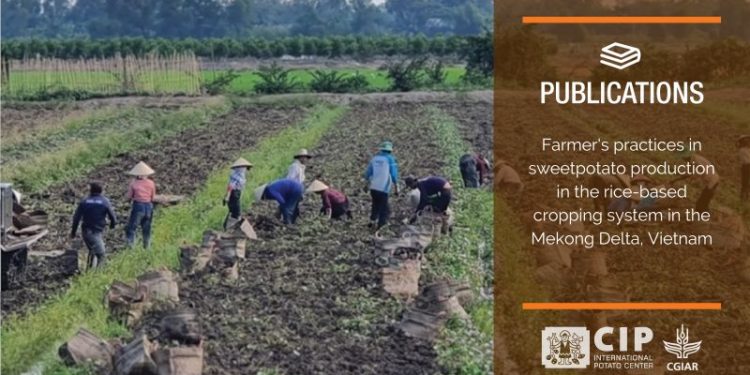Survey Reveals Agronomic Practices and Challenges in Rice-Sweet Potato Crop Rotation
A recent survey conducted by the International Potato Center (CIP) has provided valuable insights into the agronomic practices and challenges faced by sweet potato farmers in Vĩnh Long Province, Vietnam. The survey, which covered 89 sweet potato-growing households, highlights the benefits and complexities of integrating sweet potato cultivation with rice farming in the Mekong Delta region.
One of the key findings from the survey is the effectiveness of the rice-sweet potato crop rotation system. This practice offers several advantages, including improved pathogen control, reduced greenhouse gas emissions, and enhanced utilization of saline-affected plots. The integration of sweet potatoes into the rice cropping cycle helps in managing soil health and boosting overall productivity.
Farmers in Vĩnh Long Province have reported that this crop rotation not only aids in controlling diseases but also contributes to more sustainable farming practices. By alternating between rice and sweet potatoes, farmers can mitigate the build-up of pathogens and pests that often occur with monoculture systems. Additionally, the use of saline plots for sweet potato cultivation helps in optimizing land use, especially in areas where traditional crops struggle to thrive.
Despite these benefits, the survey also uncovered several challenges faced by the farmers. These include issues related to seed quality, pest management, and market access. Addressing these challenges is crucial for enhancing the productivity and sustainability of sweet potato farming in the region.
The findings from this survey will play a significant role in guiding CIP’s ongoing breeding experiments and collaborative efforts with local farmers. By focusing on the specific needs and conditions of sweet potato cultivation in Vĩnh Long, CIP aims to develop improved varieties and practices that will support farmers in the Mekong Delta and contribute to the region’s agricultural development.
The insights gained from this survey are expected to inform future initiatives aimed at enhancing the resilience and efficiency of sweet potato farming. As the Mekong Delta continues to face challenges related to climate change and land use, the adoption of innovative and sustainable farming practices will be essential for ensuring food security and agricultural sustainability.







